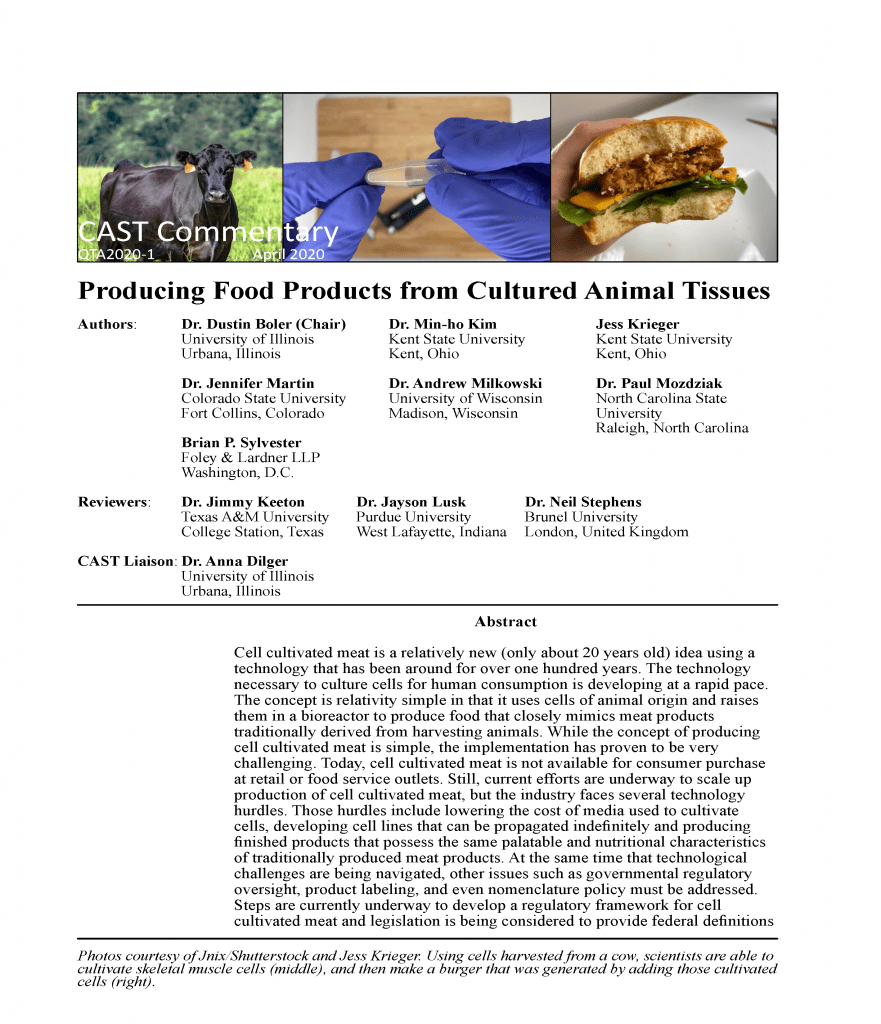
Clean meat, lab meat, fake meat—many terms are used to describe the food products created from cultivated cells of animal origin. The technology to culture animal cells and produce food for human consumption is progressing quickly, and could even find its way onto grocery shelves within the next five years. But there are also serious questions, concerns, and challenges to be addressed first.
The Council for Agricultural Science and Technology created a task force of experts to discuss obstacles that must be resolved before cell cultured meat can be purchased at local grocery stores.
“At this point, there are probably more questions than clear answers about these emerging products, but we thought it was an important time to think about the challenges and questions that need to be answered,” says Dr. Anna Dilger, an associate professor in the animal science department at the University of Illinois at Urbana-Champaign. “For example, how will products be labeled? Who will perform the needed oversight to ensure that these products are safe? What are the anticipated food safety risks with these products? It is our hope that by bringing these questions to light, constructive discussions to address these and other potential issues can occur.”
Dilger served as CAST liaison to the task force which authored this paper.
Certainly the technology itself needs to be further developed, and the safety of the products thoroughly evaluated, but consumer acceptance will matter as well. Comparisons with conventional meat will need to be scientifically investigated, and its appearance, smell, taste, texture, and nutritional profile should very closely mimic traditional meat. If the cell cultured food products do not align with the characteristics of conventional meat, consumers may be less accepting of the alternative.
“Like with any new product, consumers will ultimately determine its success or failure. What the industry can do is provide transparency about the process, clear labeling of these products, and ensure that they are safe for people to eat. Consumers will decide how and when they want to incorporate them into their diet,” Dilger says.
The commentary, Producing Food Products from Cultured Animal Tissues, is available to download for free on the CAST website.
Task Force Authors:
The Council for Agricultural
Science and Technology is an international consortium of scientific and
professional societies, companies, and nonprofit organizations. Through its
network of experts, CAST assembles, interprets, and communicates credible,
balanced, science-based information to policymakers, the media, the private
sector, and the public.
www.cast-science.org
Your donation to CAST helps support the CAST mission of communicating science to meet the challenge of producing enough food, fiber and fuel for a growing population. Every gift, no matter the size, is appreciated.